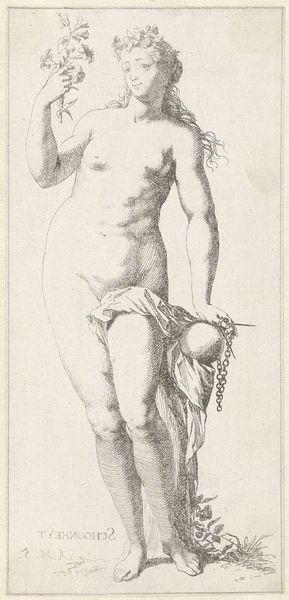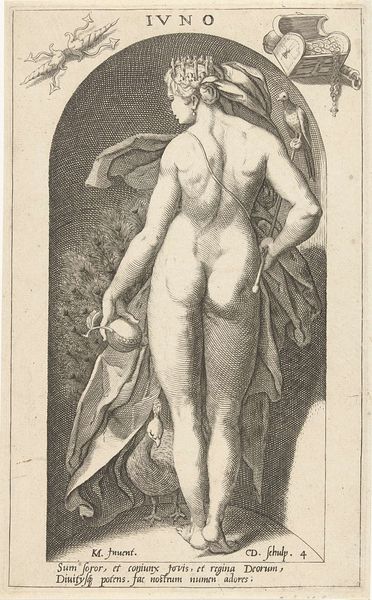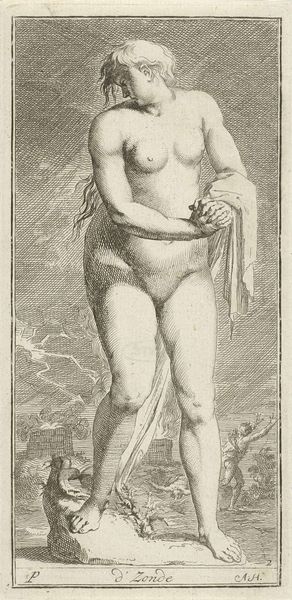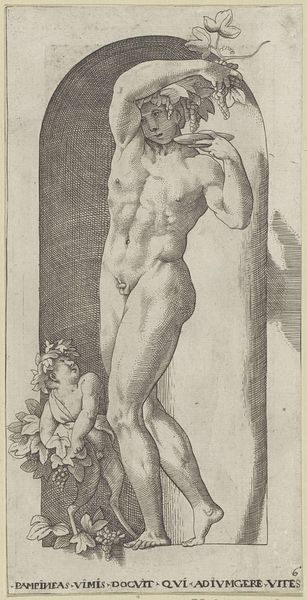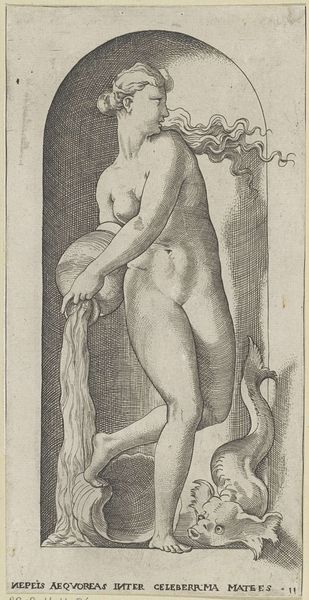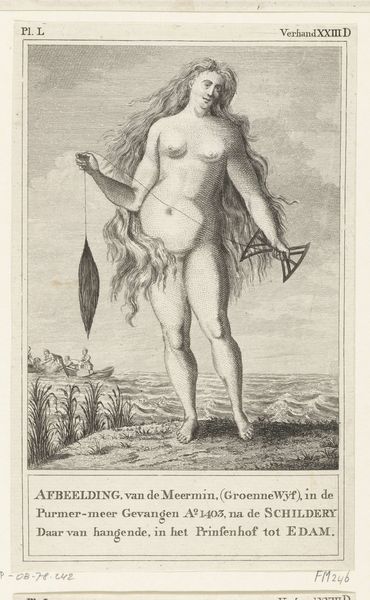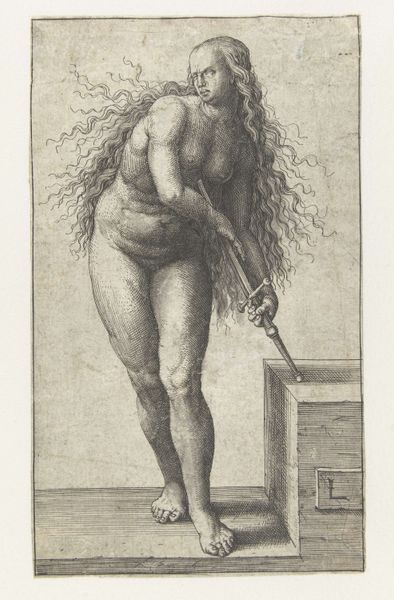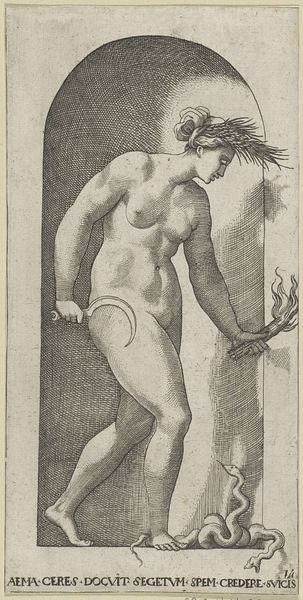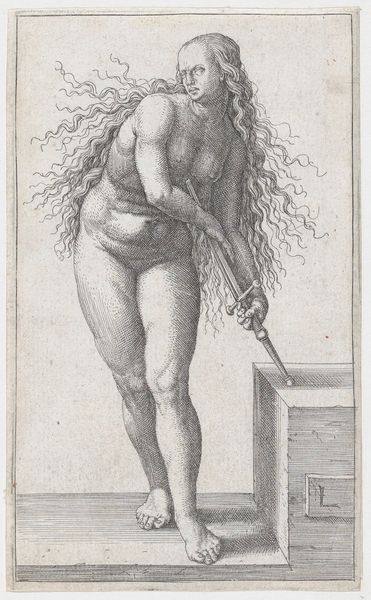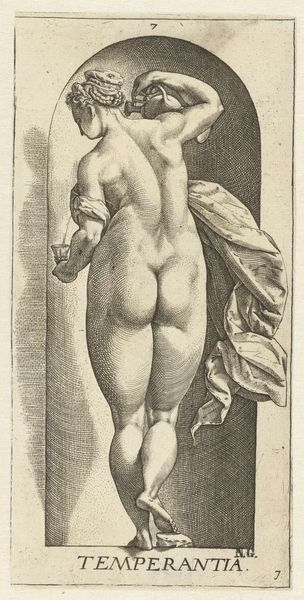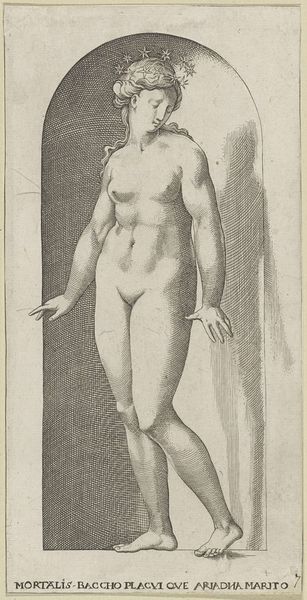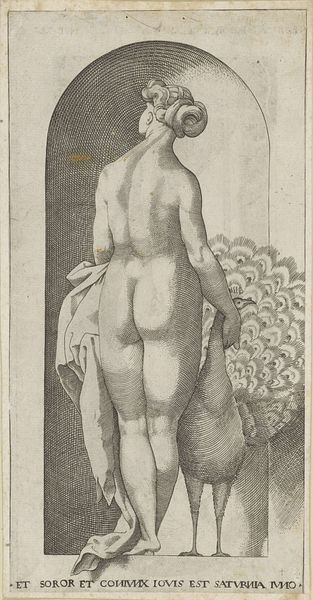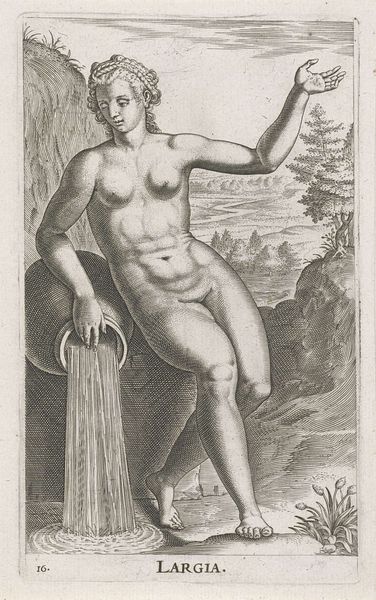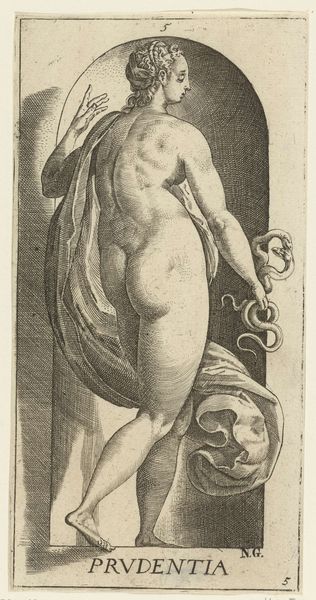
engraving
#
portrait
#
allegory
#
baroque
#
old engraving style
#
figuration
#
portrait drawing
#
nude
#
engraving
Dimensions: height 185 mm, width 94 mm
Copyright: Rijks Museum: Open Domain
This engraving of a female nude, titled "Personificatie van schoonheid," was made by Arnold Houbraken sometime before 1719. It’s an example of a reproductive print, made by incising lines into a copper plate, inking it, and running it through a press. The image captures a highly idealized, and gendered, vision of beauty. Yet we should also think about the labor that went into its production. The engraver needed to be highly skilled in draftsmanship, and the mastery of burins and other tools to create the image. The quality of the paper, ink, and printing press would also affect the final product. Consider also the social context of this image. Prints like this were made in multiples, and available for purchase by a relatively wide public. They played a crucial role in circulating ideas about art, beauty, and culture. So, while the image might seem simple, it represents a complex web of materials, processes, and social meanings. It encourages us to question conventional definitions of art, and to appreciate the skilled labor involved in its production.
Comments
No comments
Be the first to comment and join the conversation on the ultimate creative platform.
